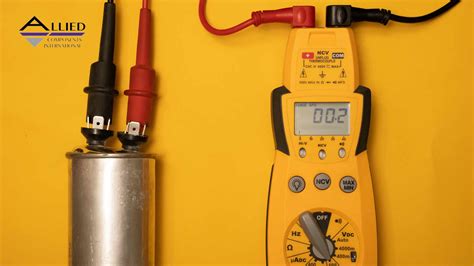A capacitor tester is an essential tool for measuring the capacitance, equivalent series resistance (ESR), and other parameters of capacitors, which are crucial components in electronic circuits. Capacitors are used to store energy, filter signals, and regulate voltage in a wide range of applications, from consumer electronics to industrial power systems. A capacitor tester helps engineers, technicians, and hobbyists to verify the specifications of capacitors, identify faulty or damaged components, and ensure the reliability and performance of electronic devices.
Principles of Capacitor Testing

Capacitor testing involves measuring the electrical properties of a capacitor, including its capacitance, ESR, and leakage current. Capacitance is the ability of a capacitor to store electric charge, and it is typically measured in units of farads (F). ESR is the internal resistance of the capacitor, which affects its ability to filter signals and regulate voltage. Leakage current is the amount of current that flows through the capacitor when it is charged, and it is an indicator of the capacitor’s insulation resistance.
Methods of Capacitor Testing
There are several methods of capacitor testing, including manual measurement using a multimeter, automated testing using a capacitor tester, and advanced testing using impedance analyzers or spectroscopes. Manual measurement using a multimeter is a simple and cost-effective method, but it may not provide accurate results for high-frequency or high-precision applications. Automated testing using a capacitor tester is faster and more accurate, and it can measure multiple parameters simultaneously. Advanced testing using impedance analyzers or spectroscopes provides detailed information about the capacitor’s electrical properties, but it requires specialized equipment and expertise.
| Capacitor Parameter | Measurement Method | Unit of Measurement |
|---|---|---|
| Capacitance | Manual measurement using multimeter | Farads (F) |
| ESR | Automated testing using capacitor tester | Ohms (Ω) |
| Leakage Current | Advanced testing using impedance analyzer | Ampere (A) |

Key Points
- A capacitor tester is a crucial tool for measuring the electrical properties of capacitors.
- Capacitance, ESR, and leakage current are the primary parameters measured during capacitor testing.
- Manual measurement using a multimeter, automated testing using a capacitor tester, and advanced testing using impedance analyzers or spectroscopes are common methods of capacitor testing.
- The selection of a capacitor tester depends on the type of capacitors being tested, the frequency range of the application, and the required level of accuracy.
- Capacitor testing is essential for ensuring the reliability and performance of electronic devices, and it can help identify faulty or damaged components.
Types of Capacitor Testers

There are several types of capacitor testers available, including handheld testers, benchtop testers, and automated testing systems. Handheld testers are portable and easy to use, but they may not provide accurate results for high-precision applications. Benchtop testers are more accurate and versatile, but they require a stable power supply and a controlled environment. Automated testing systems are fast and efficient, but they require specialized software and hardware.
Features of Capacitor Testers
Capacitor testers typically feature a range of functions, including capacitance measurement, ESR measurement, leakage current measurement, and insulation resistance measurement. Some capacitor testers also feature advanced functions, such as temperature compensation, frequency scanning, and data logging. When selecting a capacitor tester, it is essential to consider the required features and functions, as well as the level of accuracy and precision needed for the specific application.
Capacitor testers are widely used in various industries, including electronics, automotive, aerospace, and medical devices. They are also used in research and development, quality control, and maintenance and repair. The demand for capacitor testers is increasing due to the growing need for reliable and efficient electronic devices, and the development of new technologies, such as electric vehicles and renewable energy systems.
What is the purpose of a capacitor tester?
+A capacitor tester is used to measure the electrical properties of capacitors, including capacitance, ESR, and leakage current, to ensure their reliability and performance in electronic devices.
What types of capacitor testers are available?
+There are several types of capacitor testers available, including handheld testers, benchtop testers, and automated testing systems, each with its own features and functions.
How do I select a capacitor tester?
+When selecting a capacitor tester, consider the type of capacitors being tested, the frequency range of the application, and the required level of accuracy, as well as the features and functions needed for the specific application.
Meta Description: A capacitor tester is a crucial tool for measuring the electrical properties of capacitors, ensuring their reliability and performance in electronic devices. Learn about the principles, methods, and types of capacitor testing, as well as the features and functions of capacitor testers.
